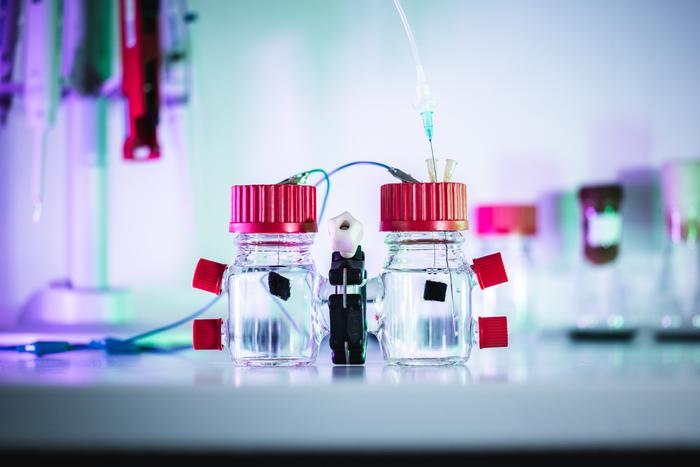E. coli Sparks Change: A Bioelectric Breakthrough in Energy Production
By enhancing the extracellular electron transfer (EET) process, researchers at EPFL have created efficient "electric microbes" capable of generating power while metabolizing various organic sources, including wastewater
Luismmolina (Canva)
A team of researchers led by Professor Ardemis Boghossian at the École Polytechnique Fédérale de Lausanne (EPFL) has unveiled a pioneering method to harness E. coli bacteria's innate potential to generate electricity. Their findings, published in the journal Joule, offer a remarkable leap forward in the realm of bioelectronics, with far-reaching implications for waste management and energy production.
“We engineered E. coli bacteria, the most widely studied microbe, to generate electricity,” said Professor Boghossian. “Though there are exotic microbes that naturally produce electricity, they can only do so in the presence of specific chemicals. E. coli can grow on a wide range of sources, which allowed us to produce electricity in a wide range of environments, including from wastewater.”

The breakthrough revolves around the process of extracellular electron transfer (EET), wherein the EPFL team has skillfully engineered E. coli bacteria to exhibit an enhanced EET capability, effectively transforming them into highly efficient "electric microbes." Notably, this method eliminates the need for specific chemicals previously required for electricity generation.
A central innovation of the study is the creation of a comprehensive EET pathway within E. coli, a feat never before achieved. Drawing inspiration from Shewanella oneidensis MR-1, a bacterium renowned for its electricity-generating prowess, the researchers successfully constructed an optimized pathway spanning both the inner and outer membranes of the cell. This novel pathway yielded a three-fold increase in electrical current generation compared to conventional approaches.
Perhaps even more noteworthy is the remarkable performance of the bioengineered E. coli in diverse environments, including wastewater sourced from a local brewery. While exotic electric microbes faltered in these conditions, the modified E. coli thrived, signifying its potential for large-scale waste treatment and energy production.
Professor Boghossian highlighted the transformative implications of their work: “Instead of putting energy into the system to process organic waste, we are producing electricity while processing organic waste at the same time – hitting two birds with one stone!”
“We even tested our technology directly on wastewater that we collected from Les Brasseurs, a local brewery in Lausanne. The exotic electric microbes weren't even able to survive, whereas our bioengineered electric bacteria were able to flourish exponentially by feeding off this waste.”
The study's significance extends well beyond waste treatment, as the engineered E. coli can now be applied in microbial fuel cells, electrosynthesis, and biosensing, among other diverse applications. Its genetic adaptability also allows customization to suit specific environments and feedstocks, establishing it as a versatile tool for sustainable technology development.
“Our work is quite timely, as engineered bioelectric microbes are pushing the boundaries in more and more real-world applications,” says Mouhib, the lead author of the manuscript. “We have set a new record compared to the previous state-of-the-art, which relied only on a partial pathway, and compared to the microbe that was used in one of the biggest papers recently published in the field. With all the current research efforts in the field, we are excited about the future of bioelectric bacteria and can’t wait for us and others to push this technology into new scales.”
This groundbreaking research signals a significant advancement in the field of bioelectronics, unlocking new avenues for sustainable energy production and waste management with the potential to revolutionize various industries.


















